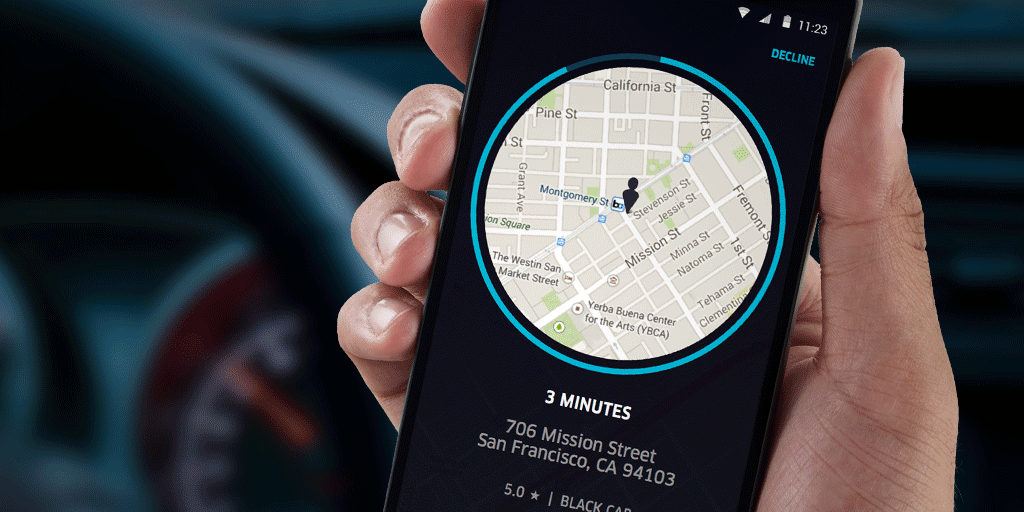As one of 17,000 attendees at the 6th annual Smart City Expo World Congress in Barcelona, it was easy to get lost in the crowd. And while large corporate companies certainly had formidable and impressive presence, it was the startups that left the biggest impression.
Read MoreFrom autonomous vehicles to automated everything, the pace of smart city technology is accelerating, sparking equal parts enthusiasm and anxiety. Industry and government leaders around the world are looking for guidance as they attempt to navigate the unknowns accompanying these shifts. It turns out that looking inward to the middle of the U.S. may yield some of the greatest insights.
Read MoreRead More“The U.S. must align its national priorities with innovation policy. The UAE and China certainly are.” In a couple of sentences, tech founder Amir Husain, who just raised $32.5 million for his AI startup, Spark Cognition, gave the call to action for city leaders and policymakers nationwide.
the state of America’s airports is just one symptom of our aging infrastructure. Bridges, roadways and our digital infrastructure are also at a critical point. It is time to think big when it comes to infrastructure investments, to look to the future and to innovate across federal, state and local governments.
Read MoreIndianapolis, known as the “Amateur Sports Capital of the World”, is home to the National Collegiate Athletic Association and has hosted world championships in swimming, rowing, and basketball. Its sports facilities are anything but amateur and have become the envy of the nation.
Read MoreAn Interview with Zhao Gang, Director General by Laura Benold, Managing Editor, Smart Cities Connect,
Read MoreThe same innovations transforming business are also transforming cities. Rapid advances in technology, including the Internet of Things (IoT), machine learning, Artificial Intelligence (AI) and advanced mobile broadband capacity, can deliver a highly connected, seamlessly automated, data-rich reality.
Read MoreThere is a lot of (understandable) excitement about smart cities. But the task of deploying technology to improve the urban experience can seem like an overwhelming task. Even true believers can find themselves struggling to stay energized.
Read MoreChicago smart city leaders gather for Digi.City Connects at 1871 to talk smart cities, data and how the city is navigating the digital future.
Read MoreWhen it comes to economic metrics, the United States is used to being ranked #1. In 2016, the US Gross Domestic Product (GDP) was $18.6 trillion, seconded only by China at $11.2 trillion followed by Japan, Germany and the United Kingdom. If this premier position brings you comfort, it shouldn’t last long. These numbers measure the past – the production and manufacturing of a tangible product. However, technology moves our world in a different direction. It is less about production and more about the digital economy.
Read MoreWhen you hear the term 'city government' you may think of a bureaucratic monolith instead of hotbed of innovation. But many cities--like Tampa, Denver, Phoenix and San Diego--are transforming themselves and developing new approaches to age-old urban issues while also creating opportunities for entrepreneurs.
Read MoreAmerica is full of companies who leverage their underdog status to sneak up on bigger competitors. Avis (CAR) even made a tagline out of it, "When you're only No. 2, you try harder." In an era where cities are steadily embracing private sector principles, this same adage applies. And thanks to the leveling effect of technology, the gap between historical winners and smaller, more nimble players is quickly narrowing.
Read MoreUber is synonymous with disruption and transportation. What started with ridesharing has expanded to autonomous (driverless) vehicles and even plans for flying cars. Whether you love them or loathe them, there are some important lessons you can learn from the company's journey.
Read MoreChelsea Collier
Cities large and small hold a wealth of problems for entrepreneurs to solve. With the enormous amount of services that cities are responsible for providing--public transportation, utilities, emergency services--observant founders can build businesses that will garner plenty of interest by finding ways to optimize these operations.
Read MoreWhile there may be no such thing as a free ride, thanks to Veniam, there is now free wifi on the ride. Veniam turns vehicles into mobile hotspots while their sensor technology gathers terabytes of valuable data from the physical world. Welcome to the Internet of Moving Things.
Read MoreWhen you compare a city-nation like Singapore to the United States, there are a number of differences, but one is fairly obvious: size. Singapore’s population of 5.8 million is roughly equivalent to that of Wisconsin. The total land area (278 square miles) is about the size of Lexington, Kentucky. In addition, Singapore has an inherent lack of natural resources. These two factors are very real constraints.
Read More



















